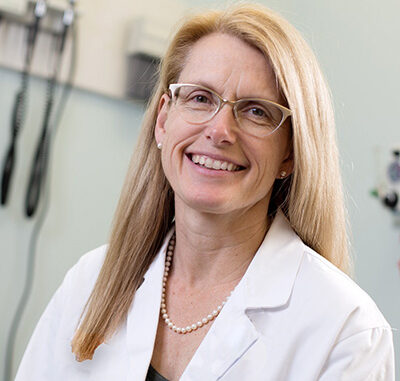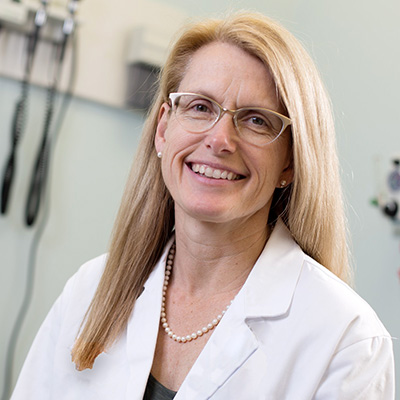
Dr. Susan C. Modesitt is the Leach/Hendee endowed Professor in the Gynecologic Oncology Division and also serves as the Division Director. She completed her undergraduate degree at Emory University and went on to complete medical school at the University of Virginia, her OB/GYN residency at the University of North Carolina and her Gynecologic Oncology fellowship at the M.D. Anderson Cancer Center. She was on faculty at the University of Kentucky prior to joining the faculty at the University of Virginia where she was the Division Director from 2007-2022. Dr. Modesitt returned to Emory University in 2022 to become the Division Director and head of the Gynecologic Cancer Team in the Winship Cancer Institute.
Dr. Modesitt is a fellow of the American College of Obstetricians and Gynecologists and the American College of Surgeons and has served in multiple leadership roles and committees for the Society of Gynecologic Oncology, the American College of Obstetricians and Gynecologists, the American Board of Obstetrics and Gynecology, and the NRG Oncology Group. Dr. Modesitt is the Editor in Chief of Gynecologic Oncology Reports and has published over 110 articles, 20 book chapters/invited articles, and has been recognized annually as a Top Doctor for Cancer since 2012 and an Exceptional Women in Medicine since 2017. Her research focuses on hereditary cancers, obesity related cancers, and clinical trials. Outside of work, Dr. Modesitt loves family cycling trips, swimming, hiking, golf and, barring injury, does the occasional triathlon or road race.
Get More Information

About Gyn Cancer
● What are gynecologic cancers?
Gynecologic cancers are the uncontrolled growth and spread of abnormal cells originating in the
female reproductive organs, including the cervix, ovaries, uterus, fallopian tubes, vagina and
vulva.
● What causes gynecologic cancers?
There are many factors that cause gynecologic cancers. Medical research has discovered that
some classes of genes, called oncogenes and tumor suppressor genes, promote the growth of
cancer. The abnormal function of these genes can be acquired—e.g., through smoking, aging,
environmental influences—or inherited. Almost all cervical cancers and some cancers of the
vagina and vulva are caused by a virus known as HPV, or Human Papillomavirus.
● Can gynecologic cancers be prevented?
Screening and self-examinations conducted regularly can result in the detection of certain types
of gynecologic cancers in their earlier stages, when treatment is more likely to be successful and
a complete cure is a possibility. Diet, exercise and lifestyle choices play a significant role in the
prevention of cancer. Additionally, knowledge of family history can increase the chance of
prevention or early diagnosis by determining if someone may have a gene which makes them
susceptible to cancer.
● Who treats gynecologic cancers?
Gynecologic cancers should be treated by a specialist with advanced training and demonstrated
competence, such as a gynecologic oncologist. A gynecologic oncologist is a board-certified
obstetrician/gynecologist who has an additional three to four years of specialized training in
treating gynecologic cancers from an American Board of Obstetrics and Gynecology (ABOG)-
approved fellowship program. This subspecialty program provides training in the biology and
pathology of gynecologic cancers, as well as in all forms of treatment for these diseases,
including surgery, radiation, chemotherapy and experimental treatments.
● How are gynecologic cancers treated?
Gynecologic cancers are treated by using one or more of the following: surgery, radiation
therapy or chemotherapy. The choice of therapy(s) depends on the type and stage of the
cancer.
● Who is at risk?
Everyone with female reproductive organs is at risk for developing a gynecologic cancer. The
American Cancer Society estimates about 109,000 new cases diagnosed and approximately
33,000 deaths from gynecologic cancers in the U.S. each year.







